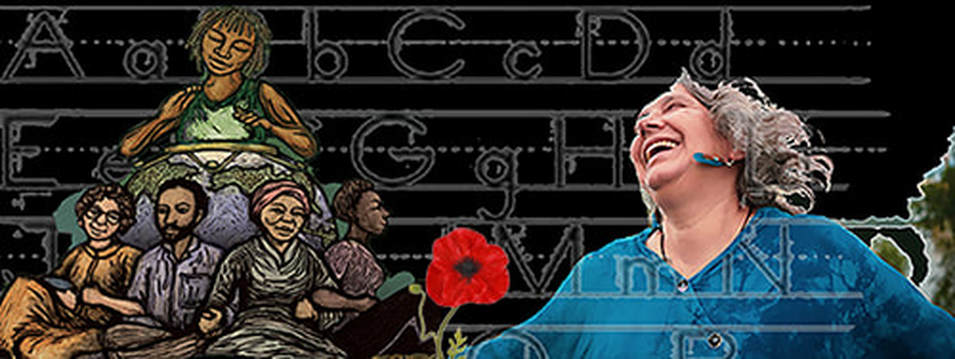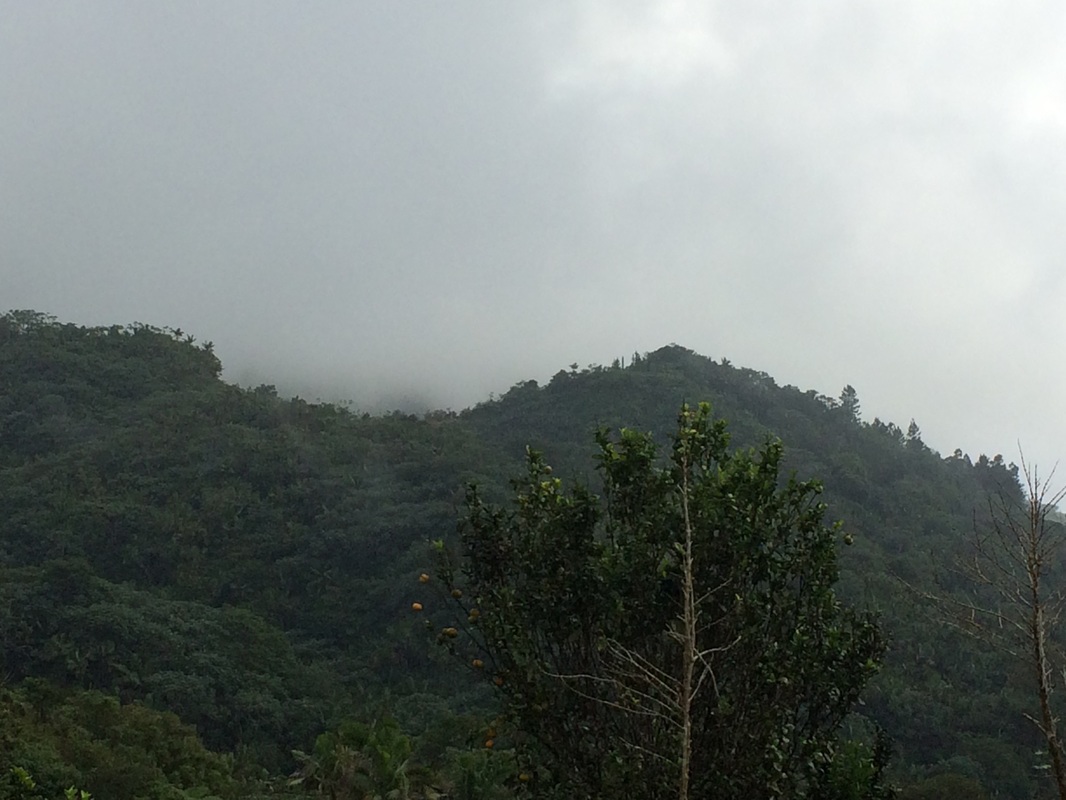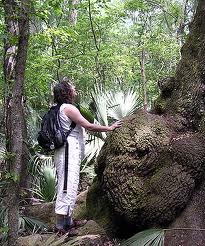 I’m in the highlands of Maricao, Puerto Rico, talking with my childhood best friend Carmen Ana Ríos and her 97 year old father. Don Luis tells me the land is exhausted, and doesn’t yield what it did. For a hundred and fifty years the mountains of Western Puerto Rico have produced some of the best coffee in the world, but now Coca Cola has bought up 60% of the island’s coffee companies, mixes it with cheap, lower quality beans from Mexico and Colombia and markets it as Puerto Rican, so the coffee itself isn’t what it was either. All along the roads are signs announcing once viable farms for sale, and tobacco giant R.J. Reynolds is buying, while the people of the mountains are being displaced, to Central Florida, Georgia, Texas. The coffee farms of my childhood were forest ecosystems, where tall shade trees kept the undergrowth to a minimum. As a boy, don Luis was sent up those trees once a year to open the canopy, so the sun could ripen the coffee. Before the harvest they’d clear the weeds once, then let the canopy close again, which controlled the weds without any further effort. Around thirty-five years ago the government began exerting pressure on farmers to cut down those forests and plant rows of sun grown Brazilian varieties that matured faster and yielded a little more. Without shade, the growers had to use herbicides to keep weeds under control. Without roots, the soil began to erode, washing downhill to silt the reservoir that provides this mountain community with water. There was no leaf litter to restore nutrients. Without trees, the birds declined. A rich tropical forest habitat became open hillsides with rows of low bushes. Government subsidies are conditional on farming the way the government says to farm. Pesticides became a requirement. Although Don Luis refused to use them, they’re in the water and easily cross property lines. There’s no direct line from pesticides to the cancer that killed his wife Nití, although the family suspects, but in the case of my own mother there is. In the 1950s when my parents grew vegetables and sold them from the back of a truck, pesticides were supposed to be the solution to world hunger, and chemistry would bring better living to all. The pesticide Dieldrin is strongly linked to MGUS, a precursor to multiple myeloma, the blood cancer from which my mother died in 2011. It’s also used to induce epilepsy in lab rats, and exposed to it in similar ways, I began having seizures as a young child. My doctor says that because my liver is genetically inefficient at getting rid of toxins, and my exposure was heavy, my severe chemical sensitivities can be at least partially traced back to the white powders that covered my father’s clothing when he came in from the farm and picked me up in his arms. It’s likely that the residues persist in the soil as well. This is a land that could produce abundant food, but with an economy skewed for five centuries to meet the needs of foreign interests, food cultivation has practically vanished. In my childhood, every house had its huerto, a small plot of gandules, root vegetables, squashes and herbs, tomatoes and peppers. Today over 80% of all the island’s food is imported. If the ships stopped coming there would only be a two week supply. Famine is a real danger. Our eco-agricultural disaster is a direct result of colonialism, of the permanent subordination of our own needs to those of rich foreigners, like the billionaires now being invited to settle here tax-free, building multi-million dollar mansions along our coasts and effectively privatizing the sea. Or Monsanto, growing genetically modified seeds on our south coastal plain, in an attempt to control the world’s food supply by patenting it. Yesterday I visited Casa Pueblo. A veteran grassroots environmental organization with a strong track record of successful campaigns, Casa Pueblo is fighting on a dozen fronts—a toxic waste incinerator in Arecibo, a project to protect endangered pollinator butterflies, the posterriqueño campaign to replace wasteful streetlights with LED ones that will cut energy consumption by 70%—and trying to educate young people to understand ecology and defend our land, which can only happen if our land is ours. In the midst of a steep decline of coffee farming as a sustainable livelihood, Casa Pueblo's work is entirely supported by the sale of high quality shade grown arabiga coffee, under the brand name Madre Isla. They also sell organic vegetable and herb seeds. There is a movement of young people trying to revive food production by developing organic farming, but it’s small and receives no government support. The soil don Luis says is too tired to produce good harvests of coffee could be nourished and built up again, made to grow what my sixth grade social studies book called “frutos menores” non-cash crop “minor produce” that make no one rich, only well fed. But Carmen Ana has had enough. Economic desperation, no job prospects for the young and the invasion of Mexican cartels has brought drug traffic and its related violence even to this remote cluster of houses perched on hillsides. Last week there was a drug related murder just down the hill from my family’s farm. Her 21 year old daughter can't find a job, and crime, once limited to petty theft, has made everyone feel insecure. Although Don Luis is far too deeply rooted to leave the land he has worked all his life, Carmen Ana and her children are planning their move to Dallas, Texas, where one of her sons is already working on an assembly line, making watches. This afternoon, while I was chatting with the owners of the general store, a young man nicknamed Bambi came in and said "Me voy." These days, in the midst of the largest exodus since the post-WWII migration, "me voy" means only one thing. Bambi is going to Kentucky to make wood pallets. I’ve also had enough. This year I’m moving into my custom built non-toxic mobile home and taking my tools of activist art on the road. Starting from right here where I was born, and traveling all over the US, I’ll be writing and producing a nationally broadcast radio blog called Letters from Earth, bringing my poetic skills to the task of telling these stories of dispossession and ecological destruction, and of the multitude of local struggles to reverse those losses. This winter I head south from Boston to Maryland, North Carolina, Georgia and Louisiana, listening to those most impacted by environmental injustice, and talking with activists who are responding. By the time I get to Texas, Carmen Ana will be there. She’ll tell me the latest news from the barrio and I’ll tell her about the people I’ve met from Baltimore to the Gulf coast, who, like Casa Pueblo, fight a thousand local battles in defense of the earth and its people. I’ll tell them about each other, too, connecting the waste incinerator in Arecibo to the one in Georgia, the depredations of Monsanto in Isabella and California, gentrification from Dorado to San Francisco, and maybe, all together, we’ll be strong enough to change the story. Letters from Earth will begin broadcasting this spring on Pacifica Radio’s Flashpoints public affairs program. You can learn more about Letters from Earth at https://www.indiegogo.com/projects/letters-from-earth-poetic-eco-journalism#/
1 Comment
Dear Aurora,
Reply
Your comment will be posted after it is approved.
Leave a Reply. |
About Aurora
Aurora Levins Morales is a disabled and chronically ill, community supported writer, historian, artist and activist. It takes a village to keep her blogs coming. To become part of the village it takes, donate here. Never miss a post!
Click below to add this blog to your favorite RSS reader: Archives
September 2017
Categories
All
|



 RSS Feed
RSS Feed
